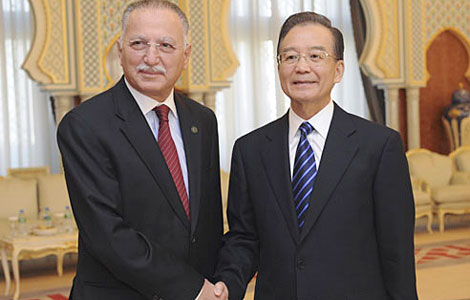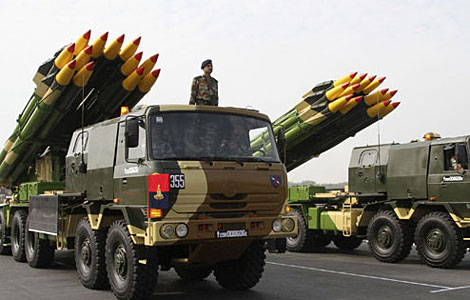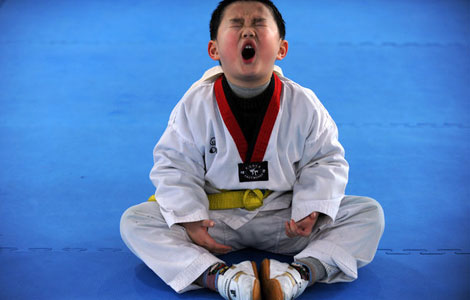Voters favor peaceful cross-Straits ties
Updated: 2012-01-15 19:38
(Xinhua)
|
|||||||||
TAIPEI - Major Taiwan media on Sunday extensively covered Ma's victory in Taiwan's leadership election and conducted in-depth analyses, saying voters have expressed approval of the "1992 Consensus" through their ballots.
Ma's position on cross-Straits issues was the key to his victory, local media said, adding that the voters' choice shows their support for peaceful development across the Taiwan Straits.
An editorial in the China Times newspaper said voters not only encouraged incumbent leaders to continue their work in the right direction, but also to remind the major opposition Democratic Progressive Party (DPP), which denies the "1992 Consensus," to "realize the importance of cross-Straits dialogues."
 |
|
Ma Ying-jeou celebrates after winning the Taiwan's 2012 leadership election in Taipei January 14, 2012.[Photo/Agencies] |
The "1992 Consensus" is an agreement reached between the mainland and Taiwan in 1992 which states that both sides adhere to the one-China principle. The consensus has served as a political foundation for cross-Straits dialogues over the past three years.
"The more DPP candidate Tsai Ing-wen attacked the consensus, the more anxious swing voters became. The DPP drifted further away from the grassroots people, who have greatly benefited from cross-Straits exchanges," the editorial said.
Under the Economic Cooperation Framework Agreement (ECFA) signed by the two sides in June 2010, hundreds of Taiwan products have been able to enter the mainland market without tariffs.
The DPP, including its 55-year-old chairwoman Tsai, must not ignore the real needs of Taiwan people, the editorial said.
"Peaceful negotiations across the Straits based on the '1992 Consensus' are what we need," it said.
On Saturday, Ma comfortably secured a second term in office with a victory in the island's fifth leadership election since 1996.
The 61-year-old Ma, who doubles as the ruling Kuomintang (KMT) party chairman, defeated Tsai and People First Party Chairman James Soong in a three-way race. Ma took 51.6 percent of the votes, leading Tsai by nearly 800,000 votes in the poll.
Taiwan's Want Daily also published a commentary, saying the core of the leadership election was the acknowledgement of the consensus.
"The '1992 Consensus' is truly a 'Taiwan consensus,' and we applaud Taiwan's public opinion," the editorial said.
Cross-Straits relations will head in a more stable and healthy direction following the election, the editorial said.
The editorial also suggested establishing a "Cross-Straits Peaceful Development Commission" to facilitate the improvement of cross-Straits relations and defuse disputes.
Taiwan's United Daily News said Ma should continue to build a lasting cross-Straits development framework, adding that the DPP should refrain from calling for independence.
The online edition of the Central Daily News, a former KMT mouthpiece, said Ma's victory was not a personal one, but belongs to the Taiwan people, and will ensure Taiwan's prosperity and stability.
It says the reelected Ma should confidently boost cross-Straits economic cooperation and accelerate the ECFA's follow-up negotiations.
"Ma's victory means both sides of the Straits can expect to maintain stability for another four years. This will be conducive to Taiwan's economic growth, employment and the layout of the island's industries based on cross-Straits cooperation," it said.
Hot Topics
Kim Jong-il, Mengniu, train crash probe, Vaclav Havel, New Year, coast guard death, Internet security, Mekong River, Strait of Hormuz, economic work conference
Editor's Picks

|

|

|

|

|

|






